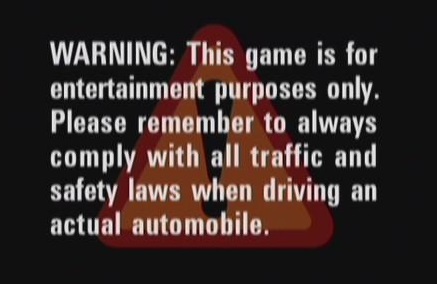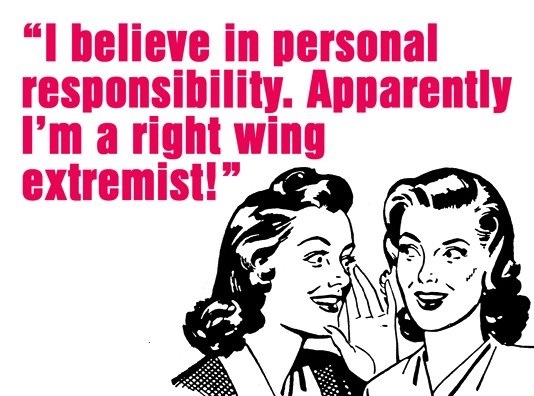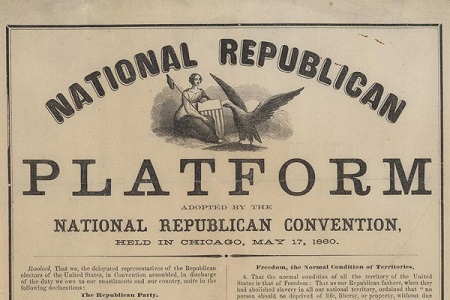{Reposted From Days Gone By At No Extra Charge To You}

Several years ago, in what seems like a very different place and time, I had a horrible school year. Some of you know how it can go – I was trying new things, and they weren’t working. Or, if they were, they weren’t being supported, and had to be abandoned, whatever prior promises. The stuff that used to work wasn’t working either, and the student rapport to which I was accustomed just wasn’t there – at least not to the extent on which I’d grown reliant.
Then the parent calls started. I’m not a teacher who gets that many upset parents, or – if I do – has trouble resolving them.
Usually.
But that year… that year they just DID NOT LIKE ME.
It took on a life of its own as little cliques began talking to each other, and as students became aware I was anathema to mom and dad, oh god it just spiraled. In retrospect, I should have found better ways to anticipate, nip, resolve – but I didn’t, and it grew.
 Introducing… Courtney. Of course her name wasn’t really Courtney, but for purposes of this blog she’s Courtney. Her real name was Alisha, but I’d never use it – it would be unprofessional.**
Introducing… Courtney. Of course her name wasn’t really Courtney, but for purposes of this blog she’s Courtney. Her real name was Alisha, but I’d never use it – it would be unprofessional.**
Courtney was popular and pretty and a straight ‘A’ student. Her father coached and her mother taught at another building. All of my superiors knew and loved her parents – and her mother hated me with the fire of a thousand suns.
Neither Courtney nor her primary progenitor cared for the way I taught, the skills in which I found value, or the policies I implemented. By Labor Day they more or less resented the oxygen I was breathing which would have been better inhaled by worthier beings.
Courtney often left school just before my class to go with dad to athletic events – which is, you know, fine in and of itself. But that’s when I really stepped in it. I followed the school policy guide regarding missed days and make-up work – a procedure which, as it turned out, was completely unacceptable. The entire Courtney family was soon convinced I had it in for their daughter, and mom began copying people way above my pay grade on every email – of which there were many.
Now, you might think the inclusion of the people who write and approve the policies would bring some sanity to the discussion. You know, if they ever replied, or acknowledged, or joined the conversation in any way – even when I begged.
Which they didn’t, although I did. So it didn’t.
I’d never felt so… angry? Wounded? Humiliated? Worse, I felt foolish for being so blindsided. I’m hardly an idealist – what made me feel immune from the realities of bureaucracy and cronyism?
 I was young enough to still cling to a FEW ideals and principles – should I give in so easily when I didn’t think it was best for classroom dynamics and expectations, best for me, or even best for Courtney? Did we want to teach her that sufficient complaining could solve any problem?
I was young enough to still cling to a FEW ideals and principles – should I give in so easily when I didn’t think it was best for classroom dynamics and expectations, best for me, or even best for Courtney? Did we want to teach her that sufficient complaining could solve any problem?
It probably didn’t help that I was myself outraged on a weekly – sometimes daily – basis by some district policy or building decision or the other. I didn’t see the irony at the time, of course – and it probably wouldn’t have helped if I had.
Everything I tried to do to improve the situation just made things worse and embarrassed me further. In hindsight, I probably could have done better – but I just kept rolling down that hill of broken glass. On fire. Without shoes.
By summer I was looking for other employment. At the very least I wanted another building (different administrators), maybe even another district. I had a good shot at a curriculum coordinator position in a district closer to home, but… I mean, I still wanted to be in the classroom…
That was the summer the movie 300 came out. For those of you who haven’t seen it, it’s a rather elastic take on the Spartans at Thermopylae. It’s not a great movie by any definition, but it’s very entertaining. I was home alone for a few weeks (my wife has a real job) and Netflixed it.
And in the two hours I spent immersed in some very bizarre choices regarding nudity and testosterone-laden CGI violence, I had an epiphany. A paradigm shift, if you will. One whose impact has lasted for a number of years.
I was trying to fix things – the student, the parents, the situation. More than that, I was trying to fix the system, the district, the underlying assumptions and realities of public education. I wanted – I NEEDED – agreement, support, understanding, validation, and action by others to make this happen. I could understand resistance, but not inertia, or apathy, or complete denial of things which were to me so glaringly clear.
I knew odds were slim and the task was great and the fields were ripe for harvest, but I still carried a faith from my evangelical days that we could win.
We could save them. We could change the system. We could make a measurable difference. If only a few key people would ‘get it’, would listen, would cooperate… we could win.
None of those things were delusions of the Spartans as they prepared to face the Persian hoards storming their shores. They positioned themselves at the narrowest pass between the oceans and their homeland, and determined to hold it as long as possible – but with little illusion what that would mean.
“Come back with your shield, or on it.” The parting words of a good Spartan mother to her son, or wife to her husband, as he left for battle. One did not flee under any circumstances. The glory of the moment was far more important, and the price of failure too high.
The Spartans didn’t do much well in terms of variety, but they were tough sons-of-bee-hatches. It was always a good day to die.
I found myself running through edu-quivalents of the more dramatic phrases uttered at Thermopylae – reshaping the content while attempting to maintain the testosterone:
(Annoying Persians) – “We will fill the air with arrows of bureaucratic nonsense!”
(Classroom Teachers) – “Then we will teach… in the SHADE!”
Yeah, it didn’t sound much better in my head, but I kept trying.
(The Hoards of Ignorance) – “Lay down your lesson plans!”
(Classroom Teachers) – “Come and GET THEM!”
So that part didn’t work. At all. Even then. But the larger paradigm shift did stick.
It wasn’t about winning. Winning would have been fine, and is often worth striving for, but that focus could often lead to frustration and poor strategy.
 What mattered was the fight. Going down gloriously. Holding the pass for as long as you might, no matter the cost. Standing in the gap full of idealistic defiance for as long as you can before you are inevitably overrun.
What mattered was the fight. Going down gloriously. Holding the pass for as long as you might, no matter the cost. Standing in the gap full of idealistic defiance for as long as you can before you are inevitably overrun.
Don’t get sidetracked by history, or home, or hope – focus on this pass, this moment, the tiny pieces of success. Claim them and don’t let go.
Well, until the part where you’re slaughtered in futility. But not until then at least.
Most of my students – even the high maintenance examples like Courtney – lack literal swords, but the battle is a draining one. The variety of pressures from within and without have been covered extensively by those far more gifted than myself.
And yeah, teaching can be a noble profession and all that. I mean, we don’t do it for the money or the glory or the clarity of expectations from above. We do it because on some naïve, idealistic, melodramatic level, we want to change the world.
I don’t think of it that way anymore. I have found great freedom and comfort, actually – and I share this without cynicism or sarcasm – in the fact that I’m pretty sure we’re going to lose.
 The bureaucrats have more bullsh*t than we have shovels, and the hordes of ignorance are legion. Those who are with us are far, far fewer than those who are against us, and whether you use Common Core math or give up and figure it the old way, we are totally and completely screwed.
The bureaucrats have more bullsh*t than we have shovels, and the hordes of ignorance are legion. Those who are with us are far, far fewer than those who are against us, and whether you use Common Core math or give up and figure it the old way, we are totally and completely screwed.
But it is a good day to teach.
OK, yeah, that phrase didn’t work either, but that’s the thing – I’m going to just keep at it because I don’t have a better plan. This is it. This is the better plan.
I’ve shared this with a few people in person, and with a few important exceptions they don’t find it encouraging AT ALL. Several have found it rather the opposite, actually – and I apologize if that’s its impact on you, my Eleven Faithful Followers, here and now.
 But try, just for a moment, to taste the glory of wildly doing what you do best without recourse to future progress or past circumstances. Imagine knowing you’re not alone, and that if you’re going down, you’re going down doing all you know how to do – insufficiently, to be sure, but leaving it all in the fields.
But try, just for a moment, to taste the glory of wildly doing what you do best without recourse to future progress or past circumstances. Imagine knowing you’re not alone, and that if you’re going down, you’re going down doing all you know how to do – insufficiently, to be sure, but leaving it all in the fields.
Teach like a rock star, a badass, or whatever other silly name you choose – because it all comes out the same.
Of course, maybe – and I hesitate to even consider – maybe our collapse will buy enough time for someone else far behind us to gather their – no, never mind. No time for such distractions. Here they come.
And I, for one, feel great.
**In case you’re worried, of course her name’s not Alisha, either. I just said that to be funny, and perhaps a bit shocking. Her real name was Shannon.

 My daughter wanted a new backpack several years ago, and after several unfulfilling stops, we ended up at Target. The selection was a bit slim – it being a few weeks after school had started – but she found something that seemed like a good combination of practical and not-entirely-embarrassing, and we took it to the nearest register.
My daughter wanted a new backpack several years ago, and after several unfulfilling stops, we ended up at Target. The selection was a bit slim – it being a few weeks after school had started – but she found something that seemed like a good combination of practical and not-entirely-embarrassing, and we took it to the nearest register.

 There’s a legal division somewhere covering someone’s corporate behind by advising me not to throw a rhino at a helicopter. We need a rule for that? Is there a label on the rhino?
There’s a legal division somewhere covering someone’s corporate behind by advising me not to throw a rhino at a helicopter. We need a rule for that? Is there a label on the rhino? The system doesn’t judge teachers or their students on what they do well, but on what items they miss. Inspire your kids all you like, but if you don’t simultaneously fulfill requirements 4a, 4b, 7, and 11 and have your learning objectives on the board when your administrator drops in for five minutes, you suck. We, in turn, tell our students to write with sincerity and passion, but if the MLA heading is on the top left instead of the top right, we can’t accept it, won’t read it, and you fail.
The system doesn’t judge teachers or their students on what they do well, but on what items they miss. Inspire your kids all you like, but if you don’t simultaneously fulfill requirements 4a, 4b, 7, and 11 and have your learning objectives on the board when your administrator drops in for five minutes, you suck. We, in turn, tell our students to write with sincerity and passion, but if the MLA heading is on the top left instead of the top right, we can’t accept it, won’t read it, and you fail. It’s not working, by the way – somehow no matter what we do, there’s always that bottom 5%.
It’s not working, by the way – somehow no matter what we do, there’s always that bottom 5%.
 Mr. Auld was no fool. He knew that control – whether of populations or individuals – begins through the information to which they have access. Whoever controls knowledge controls everything else – especially when it comes to maintaining a system based on privilege and inheritance.
Mr. Auld was no fool. He knew that control – whether of populations or individuals – begins through the information to which they have access. Whoever controls knowledge controls everything else – especially when it comes to maintaining a system based on privilege and inheritance. There’s nothing wrong with learning to be content with what you have, but that’s a choice we can only make if we have some glimpse of the alternatives. Until then, you’re just… stuck.
There’s nothing wrong with learning to be content with what you have, but that’s a choice we can only make if we have some glimpse of the alternatives. Until then, you’re just… stuck. Douglass connected with a character who was in some ways like himself – not in wise words or holy determination, but in the ways his life sucked, like being a slave. This fictional character, however, was able to demonstrate at least one possible way to endure or even flourish in the ugly, imperfect situation in which he was mired. He resonated far more than an idealized hero-figure of some sort could have, belching platitudes while fighting off the darkness with patriotic pluck.
Douglass connected with a character who was in some ways like himself – not in wise words or holy determination, but in the ways his life sucked, like being a slave. This fictional character, however, was able to demonstrate at least one possible way to endure or even flourish in the ugly, imperfect situation in which he was mired. He resonated far more than an idealized hero-figure of some sort could have, belching platitudes while fighting off the darkness with patriotic pluck. Learning is dangerous, but not to the person doing the learning. It can hurt along the way, but you usually end up better off for it.
Learning is dangerous, but not to the person doing the learning. It can hurt along the way, but you usually end up better off for it. The Inquisitions and Puritans and Assigners of Scarlet Letters in New Testament times have no such excuse. If their faith is what they claim, it’s a faith based on light and truth and – above all – informed choice. Jesus and Paul may not have had much in common, but there’s no record of either lying or hiding something they didn’t want the world to see. They had enough faith in their message that it could withstand freedom of choice. They didn’t want to capture anyone who didn’t wish to be won.
The Inquisitions and Puritans and Assigners of Scarlet Letters in New Testament times have no such excuse. If their faith is what they claim, it’s a faith based on light and truth and – above all – informed choice. Jesus and Paul may not have had much in common, but there’s no record of either lying or hiding something they didn’t want the world to see. They had enough faith in their message that it could withstand freedom of choice. They didn’t want to capture anyone who didn’t wish to be won. 
 There’s a cliché in education about teaching the child, not merely the subject. The more annoying version is that students don’t care how much you know until they know how much you care. I’m not in love with either platitude, but like most things with unfortunate sticking power, they’re not entirely wrong.
There’s a cliché in education about teaching the child, not merely the subject. The more annoying version is that students don’t care how much you know until they know how much you care. I’m not in love with either platitude, but like most things with unfortunate sticking power, they’re not entirely wrong.

 Her 1st Period class is Biology 101 and has 34 students (this is obviously pre-budget cuts). Just under half are pretty much getting it and will hopefully do fine on the Big Test. Their actual enthusiasm for truly understanding science varies widely, but whatever.
Her 1st Period class is Biology 101 and has 34 students (this is obviously pre-budget cuts). Just under half are pretty much getting it and will hopefully do fine on the Big Test. Their actual enthusiasm for truly understanding science varies widely, but whatever.  Ms. Endocrine could put more time and energy into figuring out what’s behind all of this, but she has 147 other students, many of whom DO show up and need regular attention. If it’s left on her, she’ll have to either ignore the absences or issue standardized consequences – detention. Suspension. ‘F’.
Ms. Endocrine could put more time and energy into figuring out what’s behind all of this, but she has 147 other students, many of whom DO show up and need regular attention. If it’s left on her, she’ll have to either ignore the absences or issue standardized consequences – detention. Suspension. ‘F’.  Except the research says dozens of other factors impact how or even if kids learn. The science says it matters how we adjust to actual, real students in front of us, whether we wish it were necessary or not. Ms. Endocrine COULD just teach the material. If they refuse to learn for whatever reason, she could give logical consequences – detention. Suspension. ‘F’.
Except the research says dozens of other factors impact how or even if kids learn. The science says it matters how we adjust to actual, real students in front of us, whether we wish it were necessary or not. Ms. Endocrine COULD just teach the material. If they refuse to learn for whatever reason, she could give logical consequences – detention. Suspension. ‘F’.  One girl’s mom is sick – really sick. Two kids have undiagnosed ADD or OCD or some sort of acronym making things difficult all ‘round. Judy needs glasses, but keeps not getting them. A few are probably under the influence of something illegal, far too many are scarred by some form of sexual abuse in their recent past, and it’s pretty obvious to everyone that Gary has SERIOUS anger issues he doesn’t know how to control.
One girl’s mom is sick – really sick. Two kids have undiagnosed ADD or OCD or some sort of acronym making things difficult all ‘round. Judy needs glasses, but keeps not getting them. A few are probably under the influence of something illegal, far too many are scarred by some form of sexual abuse in their recent past, and it’s pretty obvious to everyone that Gary has SERIOUS anger issues he doesn’t know how to control.  So we hire extra counselors, partnering with outside organizations when we can and eating the cost ourselves when we can’t. We create separate classrooms or activities and find specialized staff to mitigate the outside realities we can’t directly control.
So we hire extra counselors, partnering with outside organizations when we can and eating the cost ourselves when we can’t. We create separate classrooms or activities and find specialized staff to mitigate the outside realities we can’t directly control.  It’s about trying to teach kids Biology, and English, and Math – things we can’t do without some regard for who we’re trying to teach and what they’ve brought with them that might get in the way. If it were as simple as just delivering content, we could pack them in the gym and show a video lecture each day. Even better, just send a DVD home with them – see you when it’s time to assess.
It’s about trying to teach kids Biology, and English, and Math – things we can’t do without some regard for who we’re trying to teach and what they’ve brought with them that might get in the way. If it were as simple as just delivering content, we could pack them in the gym and show a video lecture each day. Even better, just send a DVD home with them – see you when it’s time to assess.










